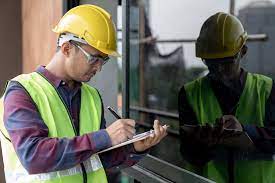
Types of Building Inspections You Should Know
Types of Building Inspections You Should Know
Building inspections provide a visual assessment of the structural integrity and safety of commercial or residential properties prior to purchase or during renovations. Such assessments can also help ensure compliance with relevant standards of building.
General building inspectors perform thorough checks at various stages of construction on buildings and structures to assess compliance with code requirements, safety standards, and structural integrity standards. Other types of inspections might also include:
Electrical
Your building inspector will conduct an electrical inspection to thoroughly examine all wiring, such as fuses and circuit breakers. They’ll check that everything is securely grounded and bonded so as to prevent dangerous electrical charges building up in walls and fixtures, while making sure all outlets and equipment are correctly labeled to prevent injury to anyone not certified to handle such things.
GFCI outlets are now required in any room containing water, and your inspector will make sure all receptacles feature this form of protection. They’ll also verify whether there are enough dedicated circuits to meet the demands of all your building occupants — this includes kitchen small appliance outlets.
If your project involves new construction, a building inspector will conduct a framing inspection to make sure all studs, beams and similar structural components have been correctly installed. They’ll also check roof, carport and exterior wall areas.
Plumbing
Plumbing inspections are an integral component of building inspections. Missed flaws in the plumbing could result in major leaks or fire hazards; thus, building inspectors regularly check circuit breakers, water pressure, fire alarms and sprinkler systems to make sure that they will function in case there ever is an incident onsite.
Building inspectors inspect walls of a building for signs of mold or cracking, as well as doors and windows to make sure they will open easily in an emergency situation.
One important thing you should know about a building inspection is that it can take place anytime of year and can even include existing properties like houses and condos, making this an invaluable pre-purchase inspection service.
Fire
Fire inspections are essential in keeping your building safe and compliant with codes. Professional inspectors conducting these reviews can assess potential fire risks at your facility and suggest ways to minimize those threats and threats.
They check for exit signs and emergency lighting, fire extinguishers, and general fire safety measures such as exit ramps. They may also search for any other issues like cluttered storage areas that might present fire risks.
These professionals must adhere to stringent state and national guidelines regarding fire code regulations. This requires extensive knowledge of various fire safety codes, ordinances and standards. Furthermore, they often must collaborate closely with other professionals in order to fully comprehend and meet code requirements in each part of a building.
Structure
An engineer conducting a structural inspection examines load-bearing structures such as walls, beams property inspection melbourne and columns for their ability to support design loads as well as environmental and occupancy-related forces.
Routine inspections are quick visual examinations designed to detect general signs of degradation such as texture and color changes in concrete, leaching, spalling, deformation, corrosion, rust streaks or salt build-up.
Inspectors often conduct pre-construction land checks prior to new building projects, as well as periodic inspections during their construction process, in order to make sure it adheres to blueprint specifications and ensure resident safety during this process. Inspections depend on the type of structure being built and can include foundation inspection, framing inspection, pre-drywall inspections or even responding to reported workplace incidents or complaints that prompt regular checks of buildings – making regular building inspections vital for homeowners, business owners and real estate professionals alike.


